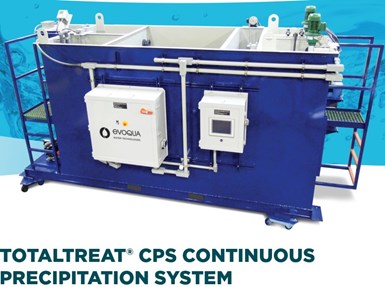Wastewater Compliance and Sustainability at Evoqua/Xylem
Compliance and sustainability considerations for effective wastewater treatment for finishing operations

Metal processing, which includes cleaning, finishing and forming, ultimately results in metal contaminants in the processing wastewaters. Heavy metals are typically present in metal processing wastewaters and require removal prior to discharge due to their potentially negative health effects in the environment. Further treatment beyond metals-removal can produce water that can be reused, thus improving the sustainability of the manufacturing process.
Compliance with ever-tightening wastewater discharge limitations, meeting sustainability and water recovery goals, and manufacturing finished products with demanding quality specifications are all part of today’s metal processing operations. Choosing the right mix of treatment technologies depends on proper waste stream evaluation and characterization, as well as clearly established treatment goals. Partnering with Evoqua, now a part of Xylem, offers you a range of treatment technologies will ensure success in achieving wastewater treatment goals.
Evoqua/Xylem | evoqua.com | Booth #1032
Related Content
-
Plating, Anodizing Equipment for Variety of Applications
Titan Metal Fabricators Titan Metal Fabricators, Rightech Fabrications and Optimum Anode Technologies are leading suppliers of equipment for the plating and anodizing industries.
-
Take Full Advantage of Industry Events
As travel plans ramp up for the year, what industry events will you attend? Products Finishing offers a quick look at some of the upcoming opportunities for 2024.
-
NASF/AESF Foundation Research Project #121: Development of a Sustainability Metrics System and a Technical Solution Method for Sustainable Metal Finishing - 15th Quarterly Report
This NASF-AESF Foundation research project report covers the twelfth quarter of project work (October-December 2023) at Wayne State University in Detroit. In this period, our main effort focused on the development of a set of Digital Twins (DTs) using the Physics-Informed Neural Network (PINN) technology with application on parts rinsing simulation.












